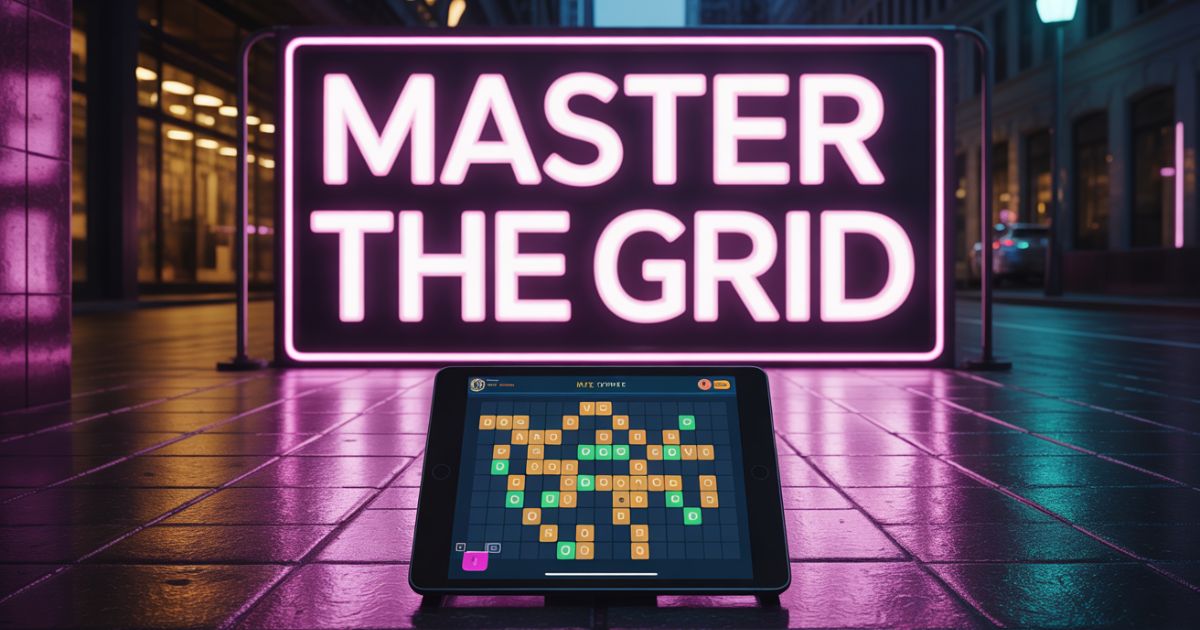The New York Times (NYT) Connections puzzle has captivated word enthusiasts and puzzle lovers alike since its inception. This engaging game challenges players to group words based on hidden connections, demanding both linguistic skill and critical thinking.
Mashable has become a go-to source for hints and tips on this puzzle, helping players enhance their gameplay. In this guide, we will explore everything from the puzzle’s format to advanced techniques for solving it, ensuring you gain a comprehensive understanding of the game and how to tackle it effectively.
Decoding the Connections Puzzle Format
The NYT Connections puzzle consists of a grid of 16 words, which are to be categorized into four groups of four words each. The challenge lies in identifying the connections between the words. Here’s a breakdown of the format:
- Grid Layout: The words are presented in a 4×4 grid.
- Word Groups: Each group may share a common theme, category, or characteristic.
- Objective: Players must correctly identify and categorize all four groups to complete the puzzle.
Key Features of the Puzzle
- Diverse Themes: Categories can range from animals, colors, and professions to more abstract themes like emotions or cultural references.
- Varying Difficulty: Some puzzles are straightforward, while others can be quite challenging, requiring deep knowledge and lateral thinking.
Understanding this format is crucial for players aiming to master the game and leverage hints effectively.
Mashable’s Approach to Connections Hints
Mashable has developed a unique approach to providing hints for the NYT Connections puzzle. Their hints are designed to be helpful without giving away the entire solution.
Types of Hints Offered
- Category Clues: General clues about the themes of the groups.
- Word Associations: Connections between individual words that hint at their grouping.
- Strategy Tips: Advice on how to approach the puzzle logically.
Why Use Mashable’s Hints?
- Expertise: Mashable’s writers are well-versed in puzzle-solving strategies.
- Clarity: Hints are presented in a straightforward manner, making them easy to understand.
- Engagement: The hints encourage players to think critically rather than simply providing answers.
Breaking Down Mashable’s Hint Structure
Mashable organizes its hints in a clear and structured way to enhance user experience. Understanding this structure can help players navigate the hints more efficiently.
Structure Overview
- Introduction: A brief overview of the puzzle and its current context.
- Hint Format: Each hint is categorized by difficulty and type, allowing players to choose based on their needs.
- Examples: Real-life examples from previous puzzles to illustrate how hints can be applied.
Benefits of This Structure
- User-Friendly: Easy navigation through hints based on difficulty and type.
- Contextual Learning: Examples help players see the application of hints in real puzzles.
Real Examples of Mashable Hints in Action
To illustrate how Mashable’s hints work, let’s explore some real examples of hints provided for different categories.
Yellow Category Example (Easiest)
Hint: “Think of common household items.”
Words: Chair, Table, Lamp, Sofa
Connection: These words all represent furniture found in typical living spaces. This type of straightforward hint is perfect for beginners.
Purple Category Example (Hardest)
Hint: “Consider literary figures from classic novels.”
Words: Gatsby, Holden, Ishmael, Huck
Connection: Each word refers to a protagonist from renowned literature. This hint encourages deeper literary knowledge and analytical thinking.
Difficult Mixed Case
Hint: “Look for overlapping themes in mythology and pop culture.”
Words: Zeus, Thor, Odin, Poseidon
Connection: All these figures are gods from various mythologies, emphasizing the importance of cultural knowledge in solving puzzles.
Advanced Techniques for Puzzle Solving
Mastering the NYT Connections puzzle requires more than just identifying word groups. Here are advanced techniques to enhance your puzzle-solving skills:
Pattern Recognition
Recognizing patterns in word relationships can significantly improve your chances of success. Look for synonyms, antonyms, or related concepts that may not be immediately obvious.
Elimination Technique
If you’re unsure about a category, eliminate words that don’t fit. This narrowing down can often lead you to the correct groupings through process of elimination.
Mind Mapping
Create a visual representation of your thoughts. This technique can help you see connections between words that may not be clear in a linear format.
Collaborate with Others
Discussing puzzles with friends or online communities can provide new perspectives and insights. Collaborative problem-solving often leads to quicker solutions.
When and How to Use Mashable’s Hints Effectively
Using hints effectively can make the difference between frustration and success. Here’s how to do it:
Timing is Key
Use hints strategically at moments when you feel stuck. Waiting until you’ve made some progress can help you avoid relying too heavily on outside assistance.
Choose the Right Type of Hint
Depending on your confidence level, opt for general category clues first before diving into more specific word associations. This approach allows you to gauge your understanding.
Reflect on Hints Provided
After using a hint, take a moment to reflect on why that hint was relevant. This practice can deepen your understanding of word associations and improve your skills for future puzzles.
Mashable’s Hint Community and Resources
Mashable has fostered a vibrant community around NYT Connections hints, providing various resources for players.
Community Engagement
- Forums: Engage with other puzzle enthusiasts to share tips and strategies.
- Social Media: Follow Mashable on platforms like Twitter and Instagram for real-time hints and updates.
Additional Resources
- Puzzle Blogs: Explore blogs dedicated to puzzle-solving for in-depth strategies and discussions.
- Videos and Tutorials: Watch expert puzzle solvers tackle the NYT Connections puzzle to see techniques in action.
Comparative Analysis with Other Hint Sources
While Mashable is a popular choice for hints, it’s beneficial to compare it with other sources to find what works best for you.
| Source | Strengths | Weaknesses |
| Mashable | Clear, structured hints; community support | May be less detailed for advanced players |
| Diverse insights from various users | Can be overwhelming; information overload | |
| YouTube | Visual learning through tutorials | Less interactive; passive learning experience |
Making the Right Choice
Consider your learning style when choosing hint sources. Whether you prefer structured guidance or community-driven insights, there’s something available for everyone.
Tips from Connections Masters
Insights from experienced players can be invaluable. Here are some tips from seasoned NYT Connections masters:
- Stay Calm: Don’t let frustration cloud your judgment. Take breaks if needed.
- Practice Regularly: The more puzzles you complete, the better you’ll become at recognizing patterns.
- Focus on Vocabulary: Expanding your vocabulary can give you an edge in identifying connections.
Troubleshooting Common Connections Challenges
Even the most experienced players face challenges. Here’s how to troubleshoot common issues:
Stuck on a Category
If you find yourself unable to identify a category, try re-reading the words with a fresh perspective. Look for synonyms or thematic links that you may have missed.
Overthinking Connections
Sometimes, the simplest answer is the correct one. Avoid over-complicating your thought process. Trust your instincts!
Time Management
If you’re playing against a timer, keep track of your time. Allocate specific time blocks for each group to ensure you don’t run out of time.
Conclusion
Mastering the NYT Connections puzzle requires a blend of skill, strategy, and resourcefulness. By leveraging Mashable’s hints, practicing advanced techniques, and engaging with the community, you can elevate your game and enjoy the process of solving puzzles. Remember, the joy of the puzzle lies not just in the solution, but in the challenge itself. Happy puzzling!
FAQ
What is the NYT Connections puzzle?
The NYT Connections puzzle is a word game where players categorize 16 words into four groups based on shared themes.
How can I improve my puzzle-solving skills?
Practice regularly, utilize hints strategically, and engage with the puzzle-solving community.
Are there resources available for NYT Connections?
Yes, Mashable provides hints, and there are various online communities and blogs dedicated to puzzle strategies.
Can I use Mashable’s hints for other puzzles?
While the hints are tailored for NYT Connections, the strategies and techniques can often be applied to other word puzzles.
Is it okay to rely on hints too much?
Using hints is fine, but try to balance your reliance on them with your own problem-solving efforts for the best learning experience.


